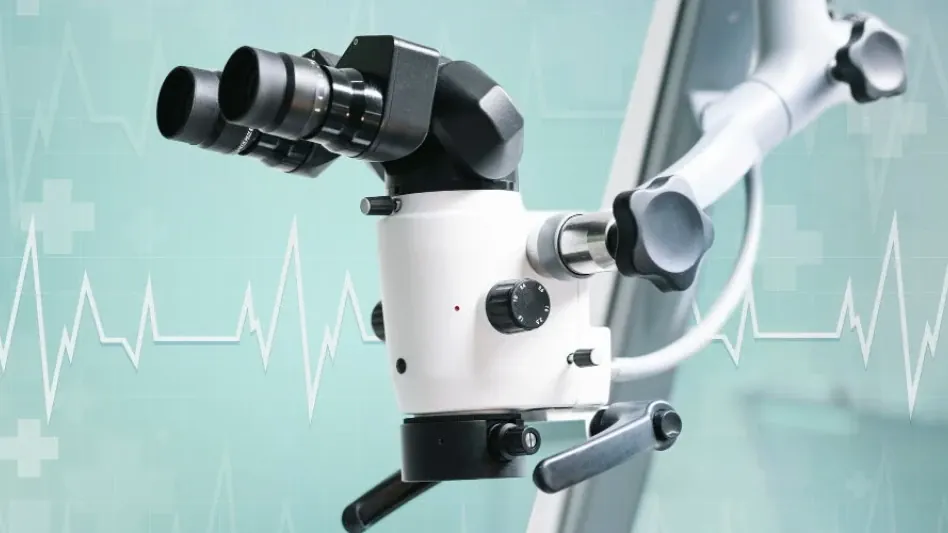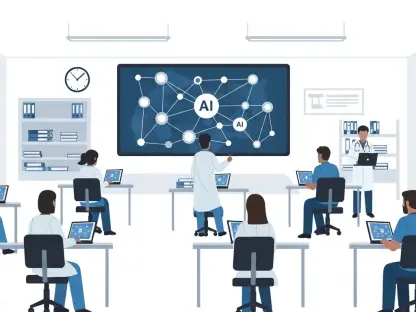The healthcare marketing landscape has been undergoing a significant transformation propelled by the advent of generative AI (Gen AI) and the strategic use of high-quality data. This advancement, which began accelerating in 2024, is poised to bring about an even greater revolution by 2025. With new technologies crafting more personalized marketing strategies and enhanced consumer engagement, the challenges and opportunities of this brave new world are immense.
The Role of Generative AI in Healthcare Marketing
Personalized Content Creation
Generative AI has shifted the paradigm of content creation by enabling marketers to generate highly personalized and conversational responses. This innovation has made it possible for brands to articulate their messages in ways that resonate uniquely with individual consumers. In 2025, marketing strategies are expected to focus even more keenly on personalized content, driven by AI’s ability to analyze vast amounts of data, understand consumer preferences, and produce tailored messaging. This approach not only increases user engagement but also maximizes the effectiveness of marketing campaigns.
With AI at the helm, marketers can develop content that aligns more closely with the evolving needs and behaviors of their target audiences. Personalized content creation powered by AI will ensure that messages are relevant and compelling at every stage of the customer journey. More importantly, these tools also allow for rapid content iteration, ensuring that marketers can quickly adjust their strategies in response to real-time data insights and changing market conditions. Thus, the role of Gen AI in content creation will be pivotal in crafting deeper and more meaningful consumer interactions.
Enhanced Consumer Engagement
The conversational nature of Gen AI enables brands to engage with consumers in a more human-like and responsive manner. This capability has fundamentally altered how companies interact with their audience, making engagement more seamless and intuitive. In 2025, we will see brands leveraging this technology to enhance customer service, support, and interaction across multiple channels. This ability to carry on meaningful, two-way conversations with consumers not only builds trust but also fosters longer-lasting relationships.
By engaging consumers through AI-driven interactions, healthcare organizations can provide more personalized experiences that meet consumers’ expectations for timely and relevant responses. These enhanced engagements are projected to increase customer satisfaction and loyalty. As AI continues to evolve, it will likely introduce even more sophisticated interaction models, further refining how brands connect with their audience. Ultimately, the success of these strategies will hinge on how effectively organizations harness AI to deliver personalized, value-rich experiences to their consumers.
The Importance of Data in AI Implementation
High-Quality Data Utilization
The effectiveness of generative AI hinges critically on the quality of data it processes. In 2024, it became evident that robust, high-quality data is indispensable for successful AI implementation. As we move into 2025, the emphasis on data will intensify, with organizations investing heavily in data acquisition, management, and analytics. High-quality data enables AI systems to generate more accurate insights, perform better market research, and support creative ideation with invaluable precision.
In healthcare marketing, the role of data cannot be overstated. Data-driven insights allow marketers to understand their audience’s needs and behaviors better, enabling the creation of more targeted and effective marketing campaigns. Furthermore, as AI models become more sophisticated, the need for comprehensive and diverse data sets will grow, challenging organizations to adopt innovative data collection and management methods. Therefore, maintaining data integrity and quality will be crucial for leveraging AI to its full potential in healthcare marketing.
Predictive Market Modeling
Predictive analytics, underpinned by advanced AI and high-quality data, is set to revolutionize healthcare marketing in 2025. Predictive market modeling will help organizations to forecast trends, understand market dynamics, and optimize marketing strategies with unprecedented accuracy. By analyzing historical and real-time data, AI can identify patterns and predict future behaviors, guiding marketers in making more informed decisions. This capability enhances the strategic planning process, allowing organizations to stay ahead of emerging trends and consumer demands.
The application of predictive modeling extends beyond traditional market analysis; it also aids in optimizing resource allocation and campaign management. By accurately predicting which strategies are likely to yield the best results, organizations can allocate their marketing budgets more efficiently, ensuring a higher return on investment. Predictive modeling thus acts as a powerful tool in the arsenal of healthcare marketers, helping them to navigate the complexities of the market with greater confidence and precision.
The Future of AI in Healthcare Marketing
Agentic AI and Ethical Frameworks
As AI continues to evolve, 2025 will witness the rise of agentic AI, which will streamline processes and enhance efficiency in healthcare marketing. Agentic AI refers to autonomous systems capable of performing complex tasks with minimal human intervention. This technology promises to overhaul marketing operations by automating routine tasks and providing actionable insights faster and more accurately. However, the increase in AI capabilities also necessitates the development of ethical frameworks to ensure responsible and fair use of data and technology.
Incorporating ethical considerations into AI development and deployment is crucial to maintaining trust and transparency in its usage. Ethical frameworks will focus on data privacy, avoiding bias in AI algorithms, and ensuring that AI applications adhere to regulatory standards. As healthcare marketing becomes more reliant on advanced AI technologies, establishing these frameworks will be essential to safeguard consumer interests and promote ethical business practices. The dual focus on technological advancement and ethical responsibility will shape the future trajectory of AI in the healthcare marketing domain.
Digital Twins in Commercial Planning
The healthcare marketing landscape is experiencing a major transformation driven by the rise of generative AI (Gen AI) and the intentional use of high-quality data. This progression, which started gaining momentum in 2024, is anticipated to spark an even more significant revolution by 2025. New technologies are enabling the development of more personalized marketing strategies, providing enhanced consumer engagement, and creating a host of opportunities and challenges in this rapidly evolving field.
As Gen AI continues to advance, healthcare marketers are capable of crafting tailored messages that resonate more deeply with individual consumers. The refinement of data analytics tools allows for a more nuanced understanding of patient needs and preferences, leading to more effective communication and improved patient outcomes. However, the integration of these advanced technologies also presents a range of challenges, including the need for robust data privacy measures and the potential risk of over-reliance on automated systems.
Consequently, while the possibilities are immense, careful navigation of this brave new world is essential for maximizing benefits and mitigating risks. Thus, healthcare marketers must stay informed and agile, ready to adapt strategies as new advancements emerge.









